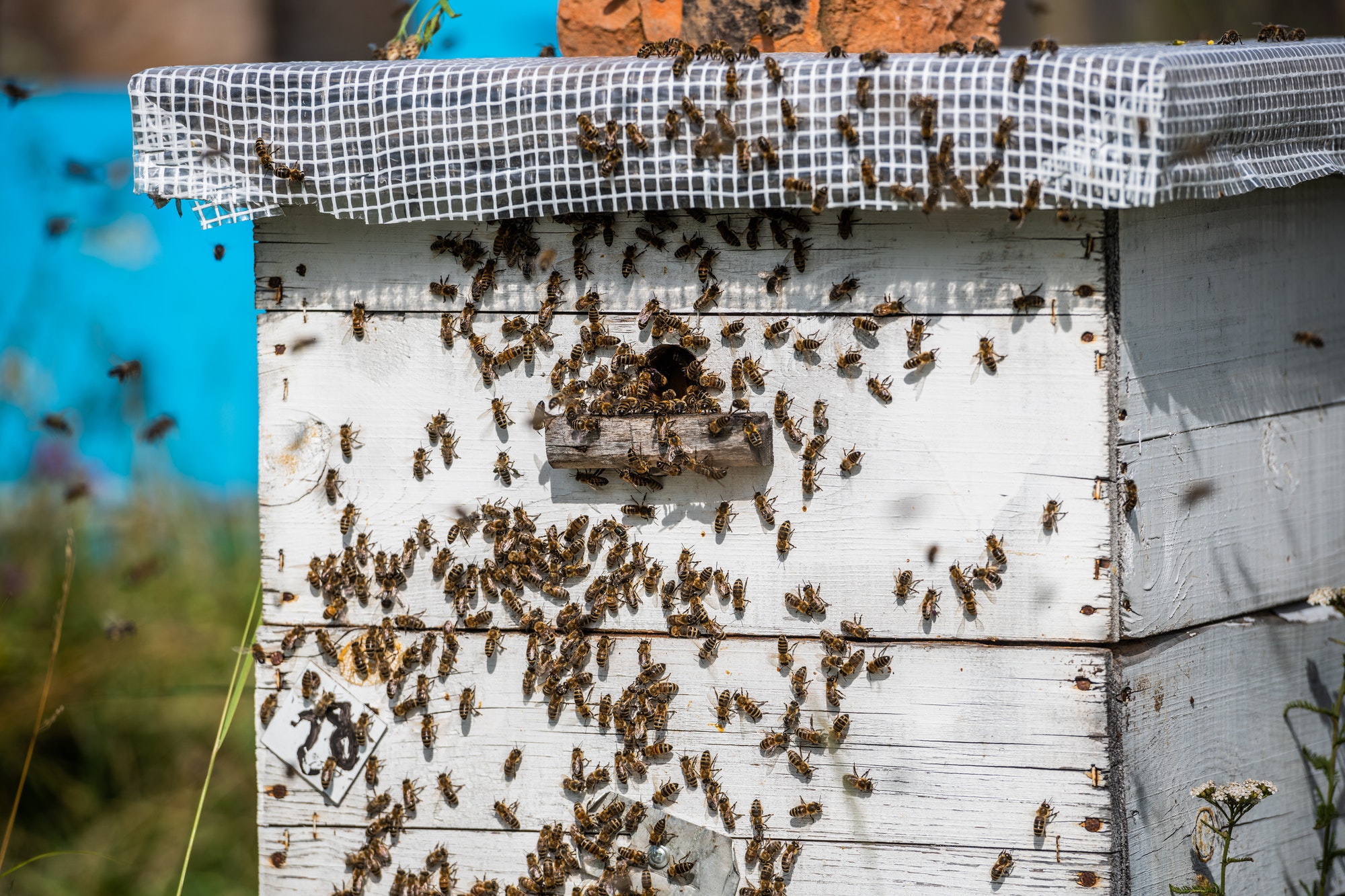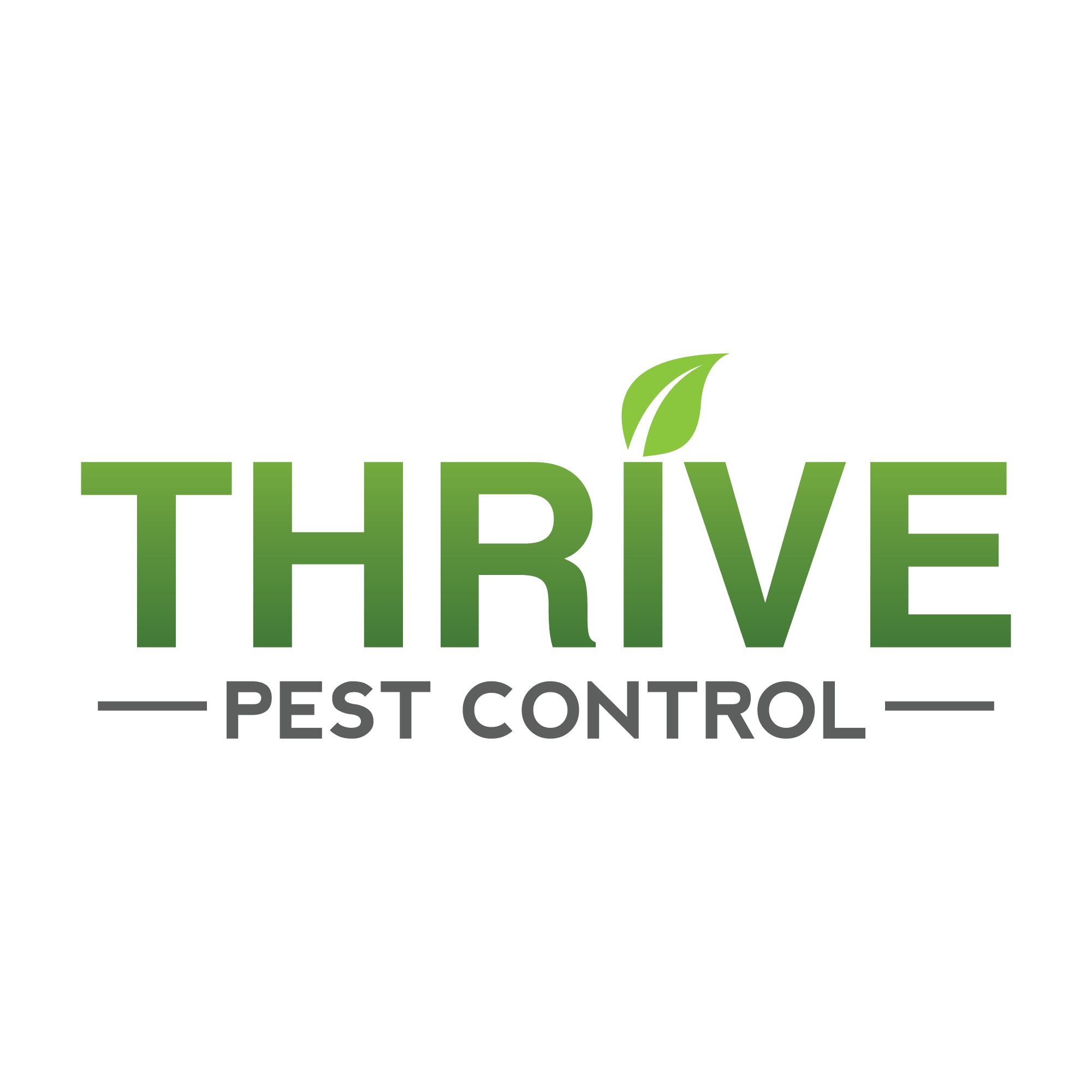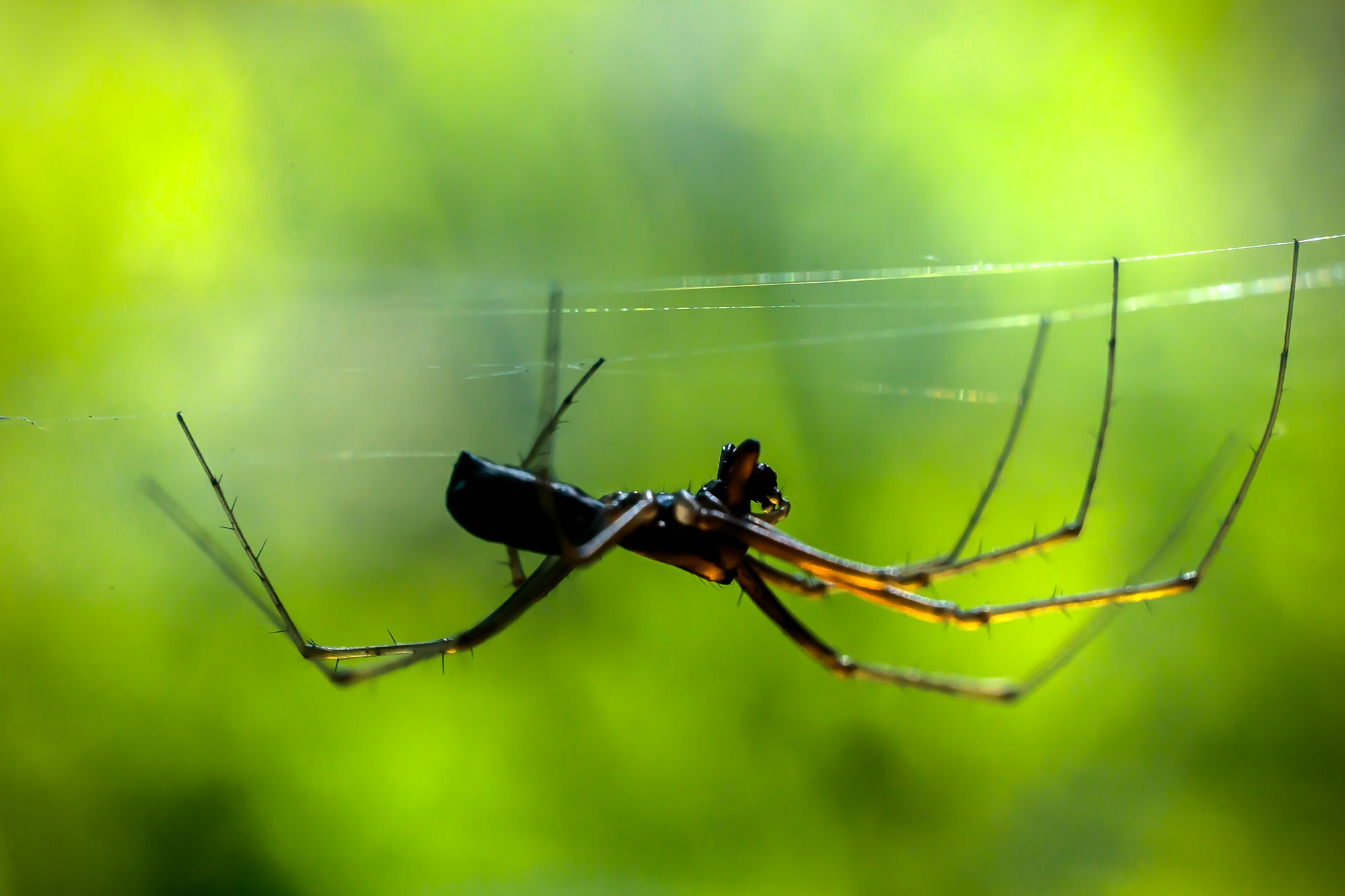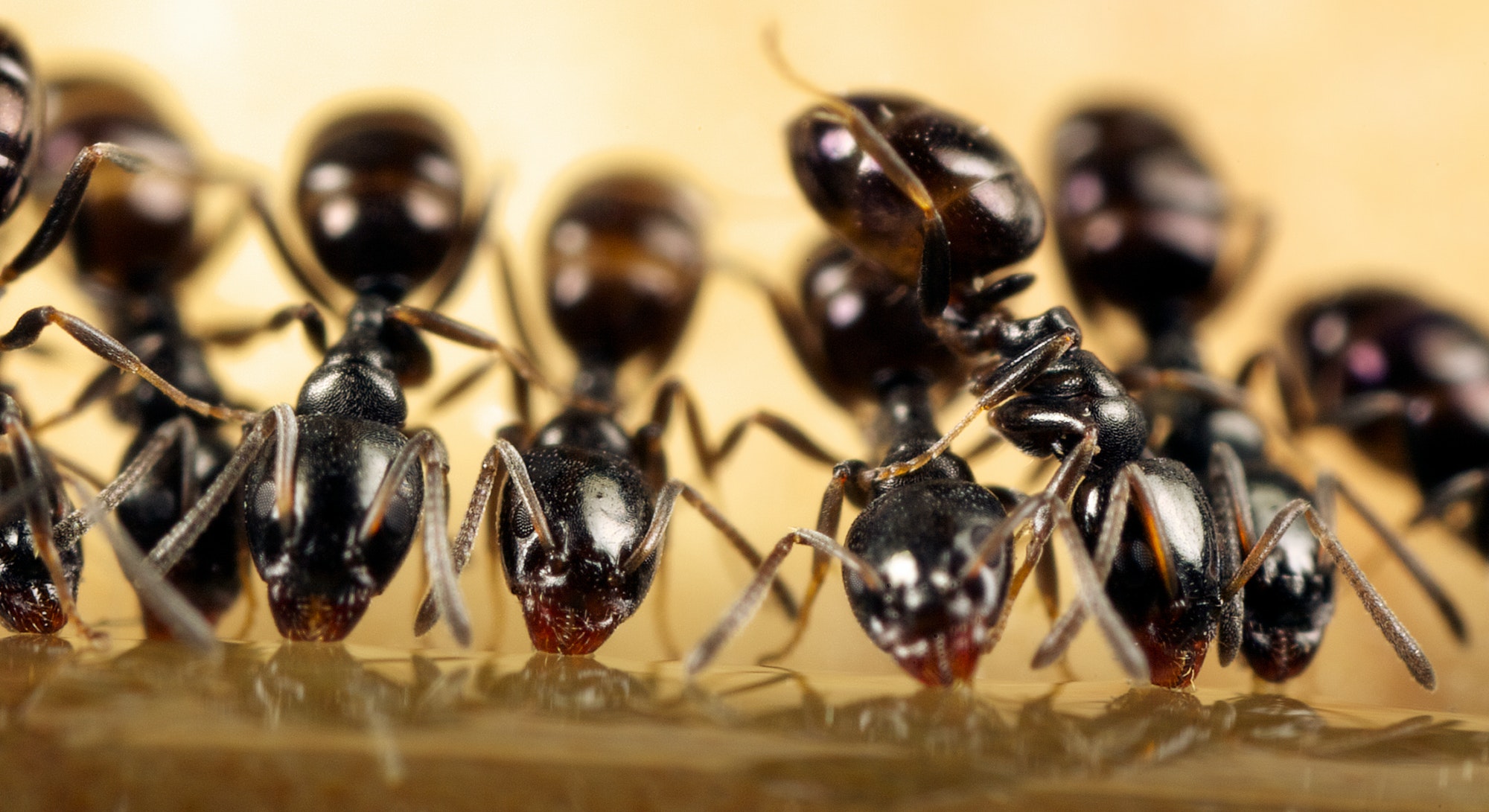Why Bees Are Important For The Ecosystem?
Image talking a walk through the forest during spring time. All the colorful flowers blooming, the beautiful scents wafting through the air, a scene that everyone wishes to capture forever because it carries with it tranquility. Well, we can all tip our hats to the bees and other pollinators for their wonderful, bustling labor. Bees’ work may go unnoticed by the general public; yet, bees are essential to maintain the ecosystem.
What role do bees play in the ecosystem? Well, bees influence ecological relationships, retain biodiversity, stabilize plant species, and create genetic diversity. Even though this is a lot of responsibility on the bee population, they can achieve this through one simple action: pollination. Pollination is the transfer of pollen from the male part of the plant (anther) to the female part of the plant (stigma) (1). Pollination can happen by self-pollination or cross-pollination and cross-pollination can use wind-pollination or animal-pollination. Cross-pollination means that the pollen from one flower goes to the next flower to fertilize the eggs in the stigma.
Plants that use self pollination are passing the same genetic material on to the next generation; therefore, resulting in less genetic diversity(1). As a result, these plant species are not as resilient to environmental changes or diseases. In a stable, unchanging environment self-pollination works great because that species doesn’t have to face any new challenges.
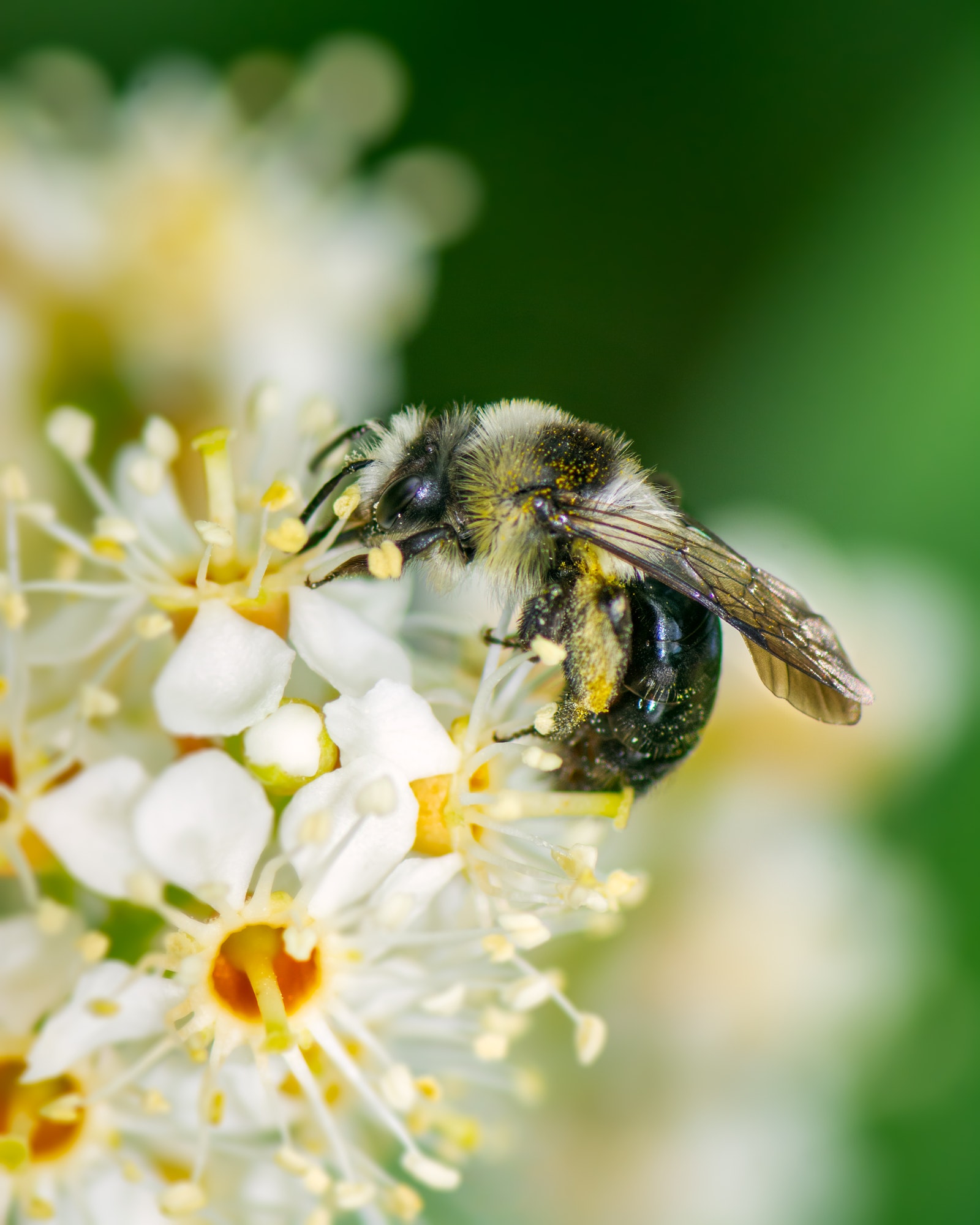
Unfortunately, that is not the world we live in. The world is very dynamic, always posing new challenges. Consequently, if the world creates a new challenge that the plant isn’t strong enough to overcome, that whole species, that used self-pollination, would become extinct.
On the flip side, most plants have the option for cross-pollination. Scientists estimate that about 300,000 plant species require some form of cross-pollination, specifically animal-pollination(7).
The benefit of using cross-pollination is that it increases the plant’s genetic diversity. Unlike other animals that can increase their genetic diversity by themselves, cross pollinating plants are reliant on pollinators to do this task for them. This is because plants are sedentary, which restricts their ability to breed with the neighboring plants. Therefore, our busy little bees are working hard to help plants maintain biodiversity by taking the pollen from one flower to the next. This increase in genetic diversity allows plants to be better suited to the changing environment resulting in an increase in survival (1,3,5).
Even though there are other animal pollinators, birds and bats for example, bees do most of the work with an estimate of 60-70 percent (3). Bees are the most effective pollinators. There are three reasons for this. First, their bodies are really hairy, which allows the pollen to better stick to them.
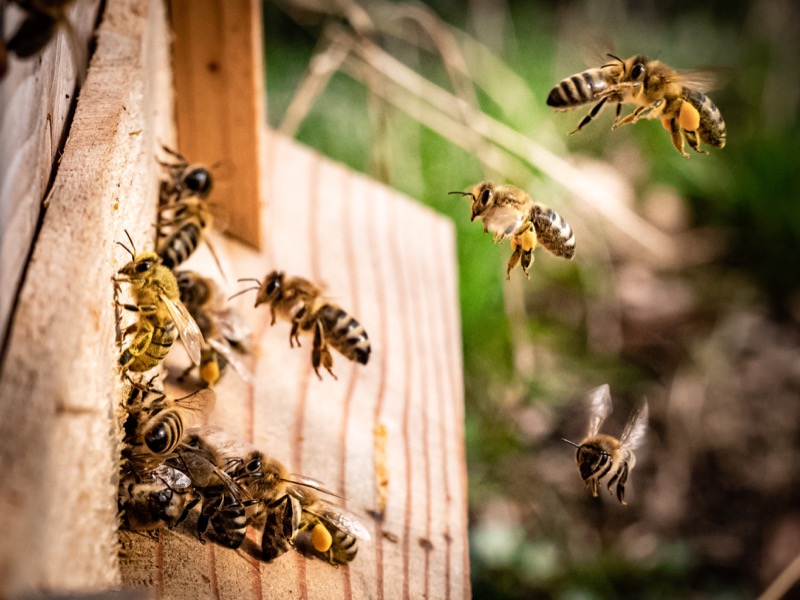
Second, bees will memorize when flowers open during the day to ensure that they can harvest the nectar and pollen (1). And third, some species will keep fertilizing one species of plants until all the nectar is gone. The latter reason ensures that the plants are adequately fertilized by continually pollinating the flowers. A lot of plants require a certain amount of pollen to have all their eggs fertilized which results in the need to have multiple visiting bees deposit pollen onto their stigma. If all of the eggs are not fertilized, the amount of seeds and fruit will diminish and so will their size and quality.
Plants are not the only ones benefiting from this continual pollination. Bees take the nectar and pollen from the plants back to their hive to produce food (1,4). The nectar from the plants is brought back to the hive to create, what we love to eat, honey. The pollen on the other hand is stored in the hive cells to form “bee bread”. Nursing bees take honey and the pollen from the bee bread to form a jelly like substance called “royal jelly” (4). The royal jelly contains all of the nutrients that the bees need for their daily life. The honey portion provides most of the nutrients for the bees, such as carbohydrates.
The pollen portion constitutes most of the proteins, fats, lipids, vitamins, and minerals. It is this royal jelly that is fed to the larvaes, queen, drones, worker bees, etc
As a result bees rely on the plants as much as the plants rely on the bees for their survival. For example, a decrease in bee population would cause fewer plants to be fertilized; therefore, the plants that are not fertilized will start to die off over time (1,3,5). Subsequently, this reduction in plants will cause further spread between plants leading to a further decrease in plant fertilization by bees. This is because bees can only fly so far away from the hive in a single day and can’t pollinate plants out of this range. Therefore, bees would obtain less pollen and nectar and wouldn’t be able maintain their population size. Consequently, starting this cycle all over again.
However, bees and plants are not the only one affected by pollination(1). Some organisms require nourishment from the fruit and seeds that these plants produce and others require shelter from predators in these plants. Therefore, bees maintain a balance between different ecosystems that rely on the plants. If the bees reduce or stop their pollination efforts for any reason, we would start to see a decline in biodiversity and imbalance in the ecosystems(3).
Furthermore, bees are not only responsible for wild plant pollination. They are also used in human agriculture. 75 percent of agricultural crops require some type of animal-pollination(6). Most of the pollination is carried out by honey bees (2,5). Most of our fruits and vegetables require continual pollination from bees to meet production demands.
Unfortunately, bee populations are declining throughout the world(3,5). Some drivers include agricultural intensification that results in habitat loss and fragmentation, and the use of pesticides(5). As a result, scientists are predicting a decline in biodiversity among plants that require pollination by bees, as well as a significant decrease in agricultural crop production. Certain areas are predicting that agricultural production could decrease by 40 percent if no action is taken (6).
So next time you walk through the forest to look at the blooming flowers or when you take a bite of a deciduous, juicy apple don’t forget to thank the working bees. Because as their numbers decrease they are trying their best to maintain the ecological relationships, genetic diversity of plants, while trying to keep themselves alive by pollinating as many flowers as they can.
Author: Vista Marston
University of Utah
References
- THE IMPORTANCE OF BEES IN NATURE. www.fao.org/3/i0842e/i0842e04.pdf
- Honey Bees Are Pollinators.” Pollination Facts – American Beekeeping Federation, www.abfnet.org/page/PollinatorFacts
- Larson, Trond H, et al. “Extinction Order and Altered Community Structure Rapidly Disrupt Ecosystem Functioning.” Ecology Letters, vol. 8, 2005, pp. 538–547
- Pain, Stephanie. “The Whole Food Diet for Bees.” Knowable Magazine | Annual Reviews, Annual Reviews, knowablemagazine.org/article/sustainability/2017/whole-food-diet-bees
- Potts, Simon G., et al. “Global Pollinator Declines: Trends, Impacts, and Drivers.” Trends in Ecology and Evolution, vol. 25, no. 6, 2010
- Stein, Katharina, et al. “Bee Pollination Increases Yield Quantity and Quality of Cash Crops in Burkina Faso, West Africa.” Scientific Reports, vol. 7, no. 1, 2017, doi:10.1038/s41598-017-17970-2
- What Are Pollinators and Why Do We Need Them.” Pollinators, ento.psu.edu/pollinators/resources-and-outreach
